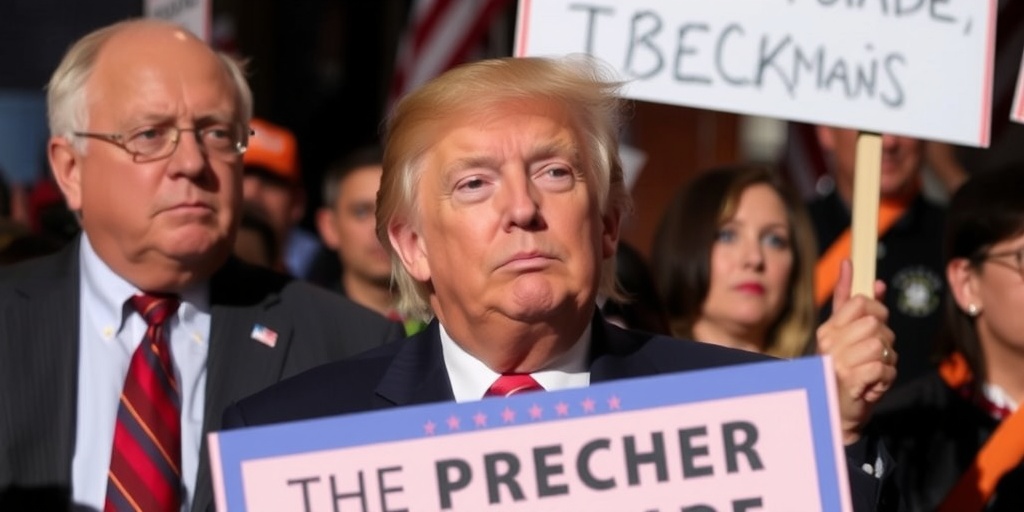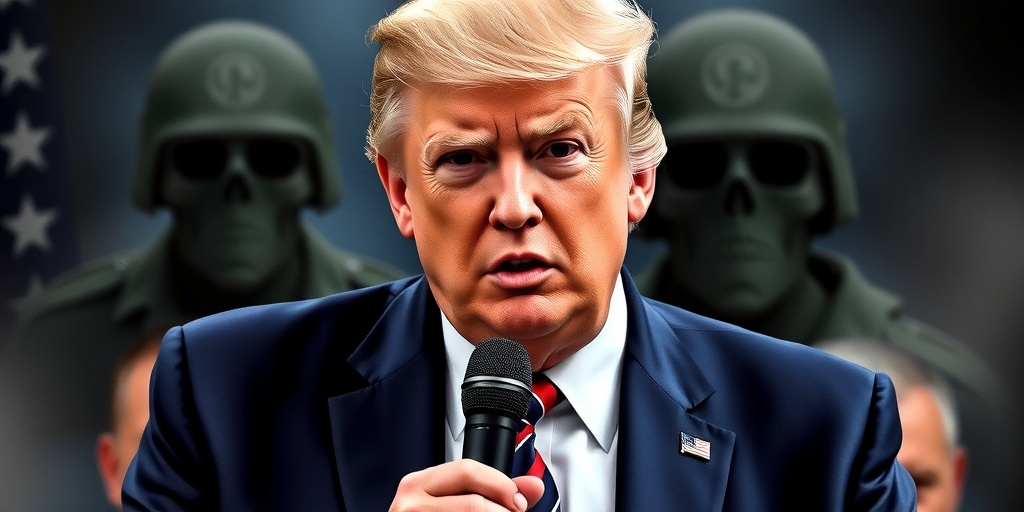Now Reading: Few Republicans Oppose Pardons for January 6 Protesters
-
01
Few Republicans Oppose Pardons for January 6 Protesters
Few Republicans Oppose Pardons for January 6 Protesters

On Tuesday, a small group of Republican lawmakers publicly expressed their disapproval of President Donald Trump’s decision to grant pardons to over 1,500 individuals who were charged for their involvement in the January 6, 2021, Capitol insurrection, which included numerous rioters who aggressively confronted law enforcement officers. These remarks came after Trump’s controversial announcement regarding the pardons, stirring a mix of reactions from various Republican figures.
Senator Thom Tillis of North Carolina was among the vocal critics. Addressing reporters on Capitol Hill, Tillis stated, “I just can’t agree,” highlighting his discontent with the pardons and underscoring his commitment to enhancing penalties for violent actions against police. He indicated his intention to introduce new legislation aimed at increasing the severity of sentences for offenses committed against law enforcement personnel, claiming that the measures could include the death penalty for those convicted of killing police officers. “I’m about to file two bills that will increase the penalties, up to and including the death penalty, for the murder of a police officer,” Tillis said, further emphasizing his conviction that those who engaged in violence, particularly against law enforcement, should face stringent consequences.
The insurrection four years ago left many lawmakers fleeing for their lives as a mob, supporting Trump, laid siege to the Capitol. In the immediate aftermath, numerous Republicans expressed the necessity of prosecuting the rioters to the fullest extent of the law. However, on Tuesday, only a handful of Republican legislators chose to voice their objections to Trump’s pardons, while many others suggested that it was time for the party and the nation to move beyond the events of that day.
Senator John Thune from South Dakota, currently serving as the majority leader, remarked, “We’re looking at the future, not the past,” while asserting that Trump’s pardons were merely “the president’s decision.” His comments reflect a growing sentiment among many Republicans who are keen on distancing themselves from the controversies of the Capitol riot and focusing on future issues.
Despite the general trend among Republicans to downplay the significance of the pardons, a few lawmakers maintained their stance against them. Senator Susan Collins from Maine argued that individuals who committed violent acts during the January 6 attack should not receive forgiveness. Collins articulated a nuanced view, stating, “While I believe some Americans were caught up in the crowd on Jan. 6 and may well deserve the clemency President Trump has given, there is a great difference between violent crimes and nonviolent crimes.” She clarified her position by stressing that she does not support pardons for those who assaulted police officers or engaged in violent acts during the riot.
Senator Kevin Cramer of North Dakota, who was also present during the chaos of January 6, acknowledged the complexity of the issue and recognized the weight of the experience on lawmakers who witnessed the insurrection firsthand. “I was there,” he expressed, recalling the harrowing events. Still, Cramer suggested that Trump’s pardons could serve as a means to move forward from the painful episode. “It’s not great,” he admitted, but added, “for the greater good, he did it to move forward and I’m ready to move forward.” This reflects a desire among some lawmakers to put the divisive events behind them.
Cramer’s previous comments about the riot indicated strong feelings about the need for law enforcement to take decisive action. He had previously stated, “If I was in charge of security at the U.S. Capitol and some guy came in busting through the window, I would have put a bullet in his head,” demonstrating the gravity of the situation in his mind.
In the wake of Trump’s pardons, there were voices of dissent even among new Republican leaders. JD Vance, before his swearing-in as vice president, openly told Fox News Sunday that individuals who engaged in violence on January 6 should not be pardoned. His remarks set a precedent that allowed other Republican officials to align with his stance. Days later, Senator Katie Britt of Alabama echoed Vance’s sentiments, stating, “I agree with JD,” during a live interview.
Even prominent Republican figures, such as Senator Mitch McConnell of Kentucky, pointed to Vance’s earlier comments in their affirmations against violence perpetuated during the riot. In an interview with the website Semafor, McConnell remarked, “Well, I think I agree with the vice president. No one should excuse violence. And particularly violence against police officers.”
As the political landscape continues to evolve, these divisions within the Republican Party regarding accountability for the Capitol insurrection and Trump’s controversial pardons highlight ongoing tensions in the party. The discussions around these issues indicate differing views on how to balance party loyalty, accountability, and the desire for reconciliation in the aftermath of a fraught period in American history. The debate is emblematic of a larger struggle to address the consequences of January 6 and how they echo into the future political dynamics of the Republican Party.
Stay Informed With the Latest & Most Important News
Previous Post
Next Post
-
 01New technology breakthrough has everyone talking right now
01New technology breakthrough has everyone talking right now -
 02Unbelievable life hack everyone needs to try today
02Unbelievable life hack everyone needs to try today -
 03Fascinating discovery found buried deep beneath the ocean
03Fascinating discovery found buried deep beneath the ocean -
 04Man invents genius device that solves everyday problems
04Man invents genius device that solves everyday problems -
 05Shocking discovery that changes what we know forever
05Shocking discovery that changes what we know forever -
 06Internet goes wild over celebrity’s unexpected fashion choice
06Internet goes wild over celebrity’s unexpected fashion choice -
 07Rare animal sighting stuns scientists and wildlife lovers
07Rare animal sighting stuns scientists and wildlife lovers





















